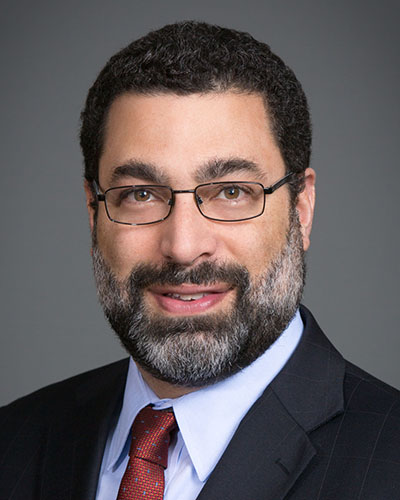Caldwell was appointed by Gov. John Engler as executive director of the Michigan Community Service Commission in 1998 and served for six years, during which time the organization underwent many changes and developed multiple new programs. Under Caldwell’s stewardship, the commission successfully transitioned from Gov. Engler’s administration (under which it was founded) to Gov. Jennifer Granholm’s administration — while many other state commissions found such a transition problematic and faced elimination or extensive reconstruction.
MCSC’s programs grew during this period with the introduction of Citizen Corps, the rapid growth of the Governor’s Service Awards, and the launch of Mentor Michigan. Citizen Corps was created in response to the terrorist attacks of September 11, 2001, and created opportunities for citizens to volunteer to help communities prepare for, and respond to, emergencies. Additionally, Citizen Corps helped build collaborations between different first responder organizations and local leaders, some of which continue today. Mentor Michigan was launched by First Gentleman Daniel Mulhern, chair of MCSC, to promote mentoring as a statewide mentoring initiative.
While at MCSC, Caldwell helped with a sector-wide movement to create the ConnectMichigan Alliance (CMA). This movement was in response to a growing concern that Michigan’s nonprofit sector would struggle without a robust network of volunteers and an infrastructure with which to manage it. Many key leaders realized that this type of network’s success would be greatly dependent on consistent public and private funding, which was uncertain at the time. This uncertainty was compounded by the impending conclusion of Gov. Engler’s administration, and a campaign was started to create a permanent endowment to support and promote volunteerism.
“You need volunteers in a large mobilization army. If that is the case, that means that you have to recruit, you have to supervise, you have to support, and you have to cultivate volunteerism all the time. Well, that takes resources. It just doesn’t happen on its own. Oftentimes we forget, we need to really think long-term about how you invest in volunteerism, whether through national service, whether through volunteer centers, whether it is through engagement of your board and training them on the roles that they have agreed to take on. That takes resources and we can’t do it on the cheap.”
Gov. Engler championed a successful $10 million, 1-for-1 challenge grant by the state of Michigan, which matched funding from the nonprofit sector (private, family, and community foundations), the for-profit sector (corporations and sole proprietorships), and individuals. In 2001, CMA, a separate infrastructure organization with a focus on volunteerism, was formed with John Lore at its helm. CMA had $20 million of endowed public and private funds and housed many initiatives that focused on supporting volunteerism, including Volunteer Centers of Michigan, Michigan Campus Compact, and America’s Promise, which were originally supported by Michigan Nonprofit Association (MNA).
In 2004, Caldwell ended his tenure at MCSC to become the second president and CEO of CMA, succeeding Lore. At that time, MNA was under the leadership of Sam Singh, Caldwell’s internship colleague at MCSC. As both MNA and CMA grew and developed, it was clear that the organizations were filling similar roles in the sector. This started a discussion about a possible merger of the two organizations, which was supported by both Caldwell and Singh. When the merger took place in 2007, both leaders supported giving MNA’s board the ability to choose the new president and CEO of the newly strengthened organization. Caldwell was asked to fill the role, and Singh took the opportunity to travel the world.
While serving as president and CEO of MNA, Caldwell oversaw significant growth in membership and finances. He helped strengthen public policy advocacy throughout the sector by training nonprofits and supporting the creation of the Governor’s Office of Foundation Liaison and the Michigan Nonprofit Council for Charitable Trusts, as well as the formation of a bicameral and bipartisan nonprofit caucus within the state’s legislature — one of three in the nation at the time. Caldwell, proud of MNA’s commitment to promoting collaboration, encouraged and assisted strategic alliances in the face of poor economic conditions. He helped found the Nonprofit Center at the Marshall Street Armory in Lansing which housed MNA, the statewide United Way, and the Capital Region Community Foundation, alongside other Michigan nonprofits under one roof. Under his leadership, MNA increased its commitment to improve the capacity of Michigan nonprofits through its creation of NPower (Highway T) and Data Driven Detroit.
“The causes and the values that we talk about when we talk about the nonprofit sector are grounded in giving to others, making sacrifice, ensuring the long-term health and stability of a community, being the keepers of our culture, being the stewards of the next generation and how they are educated.”
In early 2013, Caldwell left MNA to become the director of the Pathways Out of Poverty program at the Charles Stewart Mott Foundation. Pathways Out of Poverty is a $30 million portfolio of focused grantmaking that targets improving community education, expanding economic opportunity, and building organized communities as a means of addressing poverty in the United States. From 2015 to 2018, Caldwell served as executive director of the Dorothy A. Johnson Center for Philanthropy at Grand Valley State University. In 2018, Caldwell became the president & CEO of the Council of Michigan Foundations.
Caldwell has been heavily involved on a variety of volunteer boards, both at the state and national levels. Many of these volunteer commitments have been to infrastructure organizations, including: member of the leadership council for the Dorothy A. Johnson Center for Philanthropy and advisory committee for Our State of Generosity; member of the board of directors for the National Council of Nonprofits; board member for Independent Sector and Points of Light; and public policy committee member for Independent Sector and the Council of Michigan Foundations.






















